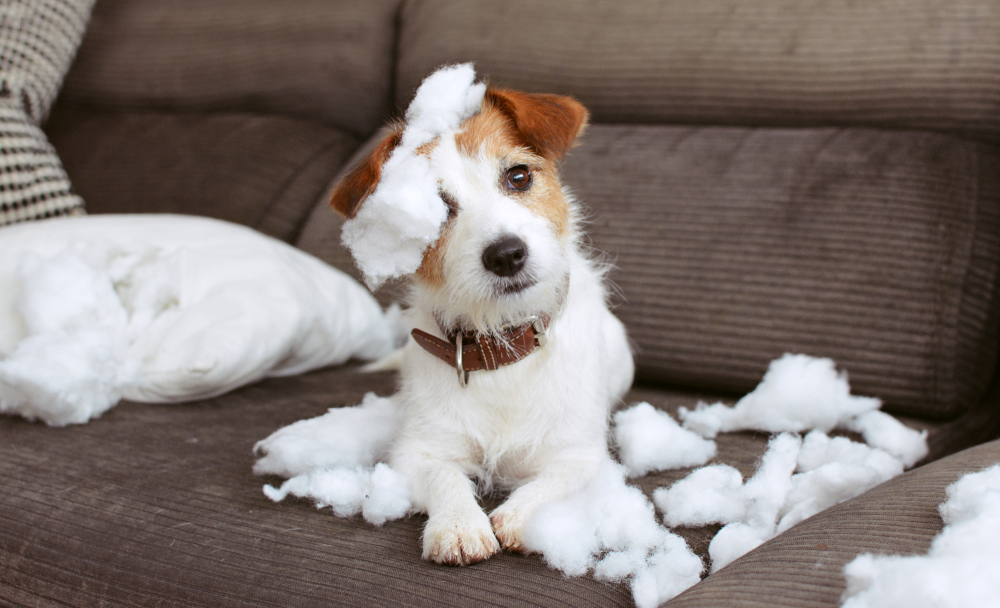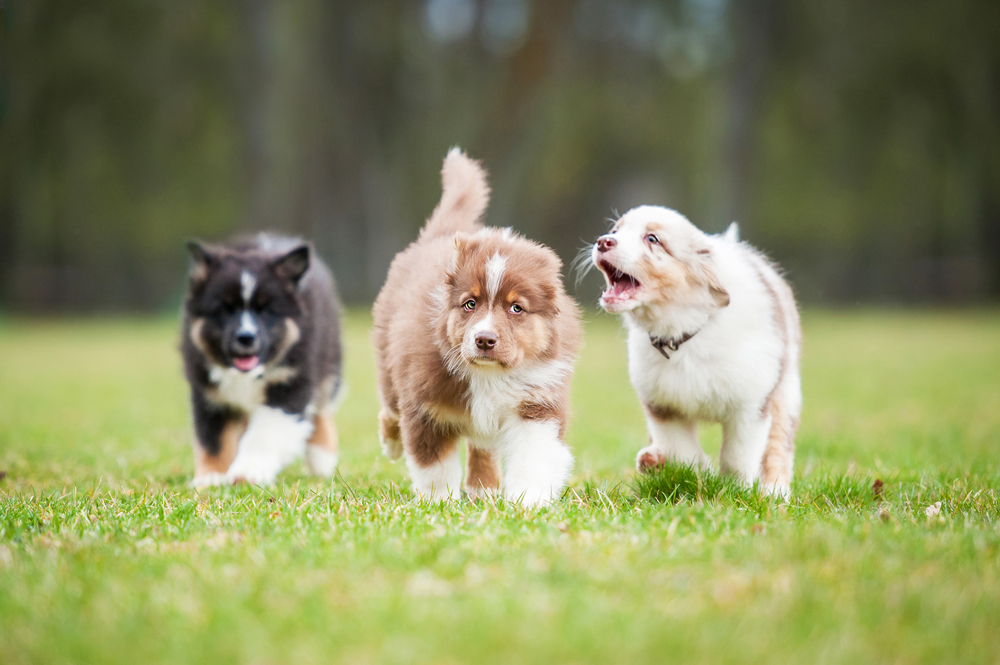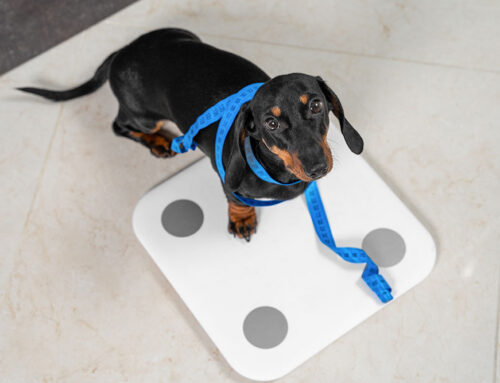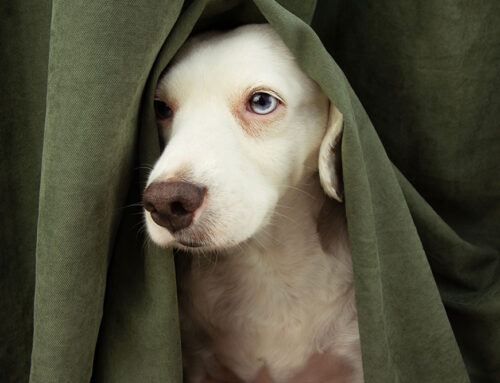Socialization is a broad term that many people believe relates to exposing your puppy only to other dogs when, in fact, socialization pertains to every novel stimulus your pup encounters. So, when you vacuum the living room while your pooch lounges on the couch, slurping on their peanut butter-stuffed Kong, that is socialization. And, when you give your puppy a small treat for each nail you clip, that is socialization.
When socializing your puppy, or acclimating them to new people, pets, and places, ensure each experience is positive and ends on a good note. Experiences during the 3- to 12-week socialization period will shape your puppy’s outlook on their world, and every effort should be made to ensure they are positive, because a solid foundation through positive socialization will allow your puppy to enjoy life-changing benefits. Here are five top reasons to socialize your puppy.
#1: Your puppy will less likely be aggressive toward other dogs
While genetics play an important role in your puppy’s personality, socialization is also key to helping them interact appropriately with other dogs. Without adequate, positive socialization as a puppy—and ongoing socialization as an adult—dogs are more likely to misconstrue body language signals and engage in unfriendly behavior. Whether based on fear or misinterpreted play signals, an unsocialized puppy is more likely to be aggressive toward other dogs as an adult dog.
Keep in mind that the way you expose your puppy to other canines is critically important. Taking them to a dog park on a sunny Saturday isn’t a good idea, but enrollment in a well-run puppy kindergarten class is a great way to introduce them to similarly aged dogs in a controlled environment. Setting up your puppy to form positive associations with other dogs of all sizes and breeds will help them be less reactive to dogs in the future.
#2: Your puppy will be friendlier toward strangers
Unfamiliar people, men wearing hats, elderly people in wheelchairs, children, women carrying umbrellas, and men with beards can startle an unsocialized puppy. Introduce your pup to as many people as possible who fall in these categories, always allowing them to make the first move. Avoid letting strangers make your puppy feel trapped or threatened. Carry a pocketful of treats on your walks, and treat your puppy each time they initiate interaction with someone new. Learning that unfamiliar people aren’t scary can make inviting people into your home less stressful for you, your dog, and your friends. Plus, the Amazon delivery person won’t throw your package out of the vehicle and drive off, if your puppy has been well-socialized with strangers.
#3: Your puppy will be easier to handle
When you first welcome your puppy home, ensure you take time every day to handle sensitive areas. Play with their ears, handle their paws, lift their lips, give them a bath, and brush their entire coat. During these potentially unpleasant tasks, reward and praise your puppy, to help form a positive association. Many dogs do not appreciate their nails being trimmed and require sedation, but with socialization, desensitization, and positive reinforcement, your pup won’t mind a pedicure.
#4: Your puppy will have more options for exercise and interaction
Puppies who fail to receive adequate socialization can grow into fearful adults who become anxious and afraid in new situations, or around other dogs, which can limit their options for exercise and future canine social interaction. Too little exercise can lead to its own behavior problems, along with various health issues. Letting your puppy explore novel environments will help them become confident in new places, especially when they’re rewarded for their curiosity. Plenty of positive exposure to new areas and other dogs will help your puppy enjoy their walks, rather than being confined to the backyard for comfort and security.
#5: Your puppy will experience less anxiety overall

During puppyhood, the world is new and exciting. However, when your puppy reaches adulthood, new experiences can be frightening. By exposing your puppy to as many new situations as possible during their socialization window, they’ll be more confident and calm as an adult. Unsocialized puppies are much more likely to be fearful of strange places, pets, and people, including friends who visit your home, when they reach adulthood, so begin a positive socialization process early with your pet.
Protect your puppy as they venture forth to explore their world by keeping them up to date on essential vaccinations and wellness checks. Give our Driftwood Animal Hospital team a call to schedule their next puppy visit.








Leave A Comment